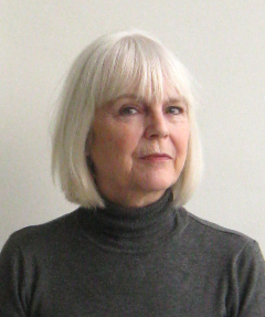Liz Kalinowska is a Registered Craniosacral Therapist with more than 20 years experience of working with adults, children and babies. She has also trained in Osteopathy, Dietary Therapy and Counselling, and is an experienced teacher and supervisor.
SERVICES
Welcome to Liz Kalinowska Craniosacral Therapist
Why Craniosacral Therapy?
Many people first decide to come for CST because they have an acute physical problem like a bad back or tension headaches, but it is also known for longstanding problems both physical and emotional. Mothers bring babies for problems associated with difficult deliveries, and many come themselves for support throughout pregnancy.
What is Craniosacral Therapy?
Although a light listening touch is the essence of CST, many people experience the results of this hands-on therapy at a profound level. Daily life creates many challenges, both physical and emotional, and stress of all kinds responds beautifully to this gentle approach. CST supports healing and sustains health in people of all ages. Those who have had treatment report that it is deeply relaxing and yet promotes vitality.
How does it work?
In the same way that being listened to by a counsellor can promote self-awareness and lead to change, so the listening hand contacts used in a CST session can begin to alert the body to a sense of it’s current state of health, and its own potential for healing. This new awareness can stimulate the release of both longstanding physical and emotional holding and lead to feelings of both general and local relaxation and heightened well-being and energy. As the clients mind begins to listen to their own body, old habitual behaviours and physical holding patterns can begin to soften and change, leaving a feeling of balance and clarity.
Anything else?
CST is said to promote overall healthy function. It is suitable for all age groups. Babies and young children respond to a way of working that is is non-invasive and gentle.
How is it done?
A CST session takes place with the client full clothed and on a comfortable couch. The practitioner sits or stands and makes light contact at various places on the body. Great care is taken that each touch is gentle and appropriate. The client may occasionally be invited to express any issues or describe sensations and images that arise during the session. The client’s own participation in the process leads to a rich experience, and a sense of being more in touch with their own body.
Any contra-indications?
You will be asked at the case-history taking if you have consulted your GP, and may be recommended to do so, depending on your symptoms, before treatment takes place. CST does not seek to replace conventional medical treatment.
As with many holistic approaches, there may be a period of adjustment after treatment and some minor discomfort as the healing process is stimulated. This is generally short lived, and seen as a sign of natural rebalancing
How often should I have CST?
Liz will suggest how often you need to come, but in general CST should be seen as a medium to long term treatment option. As with talking therapies, time is needed to address longstanding problems, and CST should not normally be seen as a quick fix. However, some conditions, especially in young babies may resolve more quickly and require less time.
Liz practices in Richmond and St John's Wood. Adults £60, babies and Children £45. Treatments last 1 Hour.
24 hours notice is required for all cancellations, or a charge may be made.
QUALIFICATION DETAILS
FCSTA, RCST
Service Categories
Craniosacral Therapy
|
|
 |